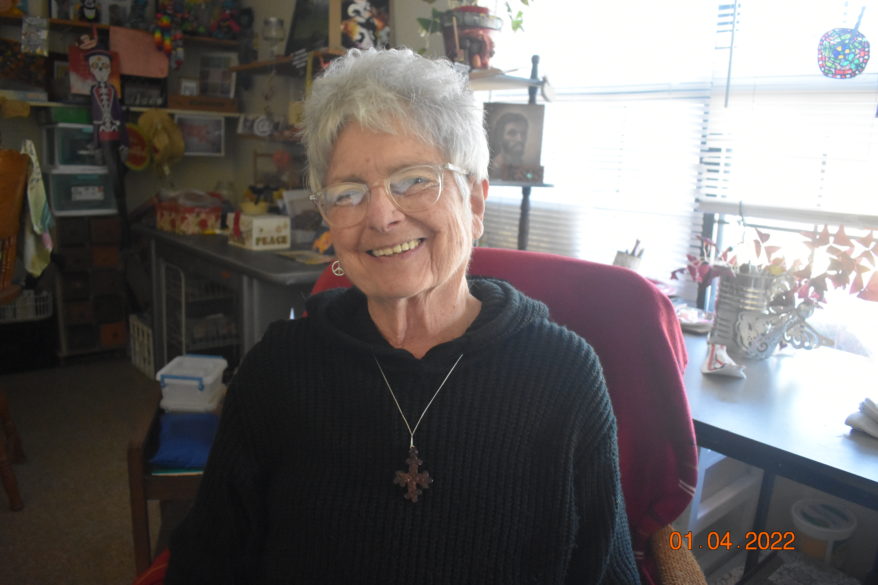From the hermitage
By sister alies therese
In England I was blessed to know an Anglican priest, Robert Llewelyn, who for many years was the chaplain at the Julian Shrine in Norwich. I lived some twenty miles away and went there frequently. Of his several books, a favorite is Prayer and Contemplation (SLG Press, Oxford, 1977). In chapter seven, he considers contemplation and the cloud of forgetting – some help to me.
As we age forgetfulness shows up … names, things, why I’m doing this, where was I going? etc. These seem quite negative and often cause us to wonder where we are on the dementia continuum.
I heard about a psychiatrist speaking before a group of seniors about dementia. Key to his rather clinical explanations was this delightful indicator. He asked how many had lost their keys. Most raised their hands. Then he asked how many found them? Most raised their hands. That is not dementia he told them. This is: did you know what to do with the keys when you found them? This caused some laughter and he laughed too. Holy forgetting is not quite the same!
This holy forgetting that Robert writes about is from The Cloud of Unknowing an old 14th century text, written by the author to a young disciple who wanted training in prayer. These ‘clouds’ help us focus on God in prayer. For example, one of the most important things to put under this cloud of forgetting is past sins, confessed and forgiven. Yes, they come into our minds … that distracts us. In Chapter 31 of The Cloud:
“…sins (new or old) try to cover them with the thick cloud of forgetting as though they had never been committed by you or anyone else …”

Robert then goes on to remind us that he is not talking about repression (nor was the author of The Cloud) … that is dangerous. “That,” he says, “is a compulsory and involuntary forgetting or experience of memories which the mind has found too painful to retain in conscious thought.” These are mental health issues to be sorted and healed in other ways.
Robert is concerned rather with trying to heal involuntary distractions (and even voluntary ones), so that we are able to pray, focused on God. “We are,” he says, “poor apart from God’s enabling strength and it may well be that this awareness is our deepest need.” (page 80)
Without this strength we can do nothing. Our goal is to ultimately behold God and in our daily life we see the many wonderful, unique, and marvelous works of God … but not quite God. What we want, Robert reminds us, is to come to the prayer of the Holy Spirit who “gives us the ‘best’ prayer, whether seen as being for God’s glory or as a meeting of our need for deliverance: twin aspects of prayer that must be held together.”
“But once our sights,” he concludes, “have been truly set on God, with the desire and intention that in God’s grace they will remain so, we need not fear these invaders of our imagination. What now becomes necessary is to pay them no attention.” When this is practiced, we find healing. “Try to forget created things, let them go … sit in the darkness as long as it takes … go on longing after the God you love, never giving up.”
Mark Lowry, Christian humorist, musician and writer noted this: “I look forward … but the memories can be greater.” He talks of how his PawPaw couldn’t remember much near his end … “except the Sunday dinners on the ground and singing in the male quartet. He sat and looked forward to the coming of the Lord … where memories and plans are the same. And I’m sure,” he quips, “over the door into heaven there is a sign: No Wheelchairs, Hospital Beds, or Bedpans Allowed!” Great things to forget!
(Sister alies therese is a canonically vowed hermit with days formed around prayer and writing.)
